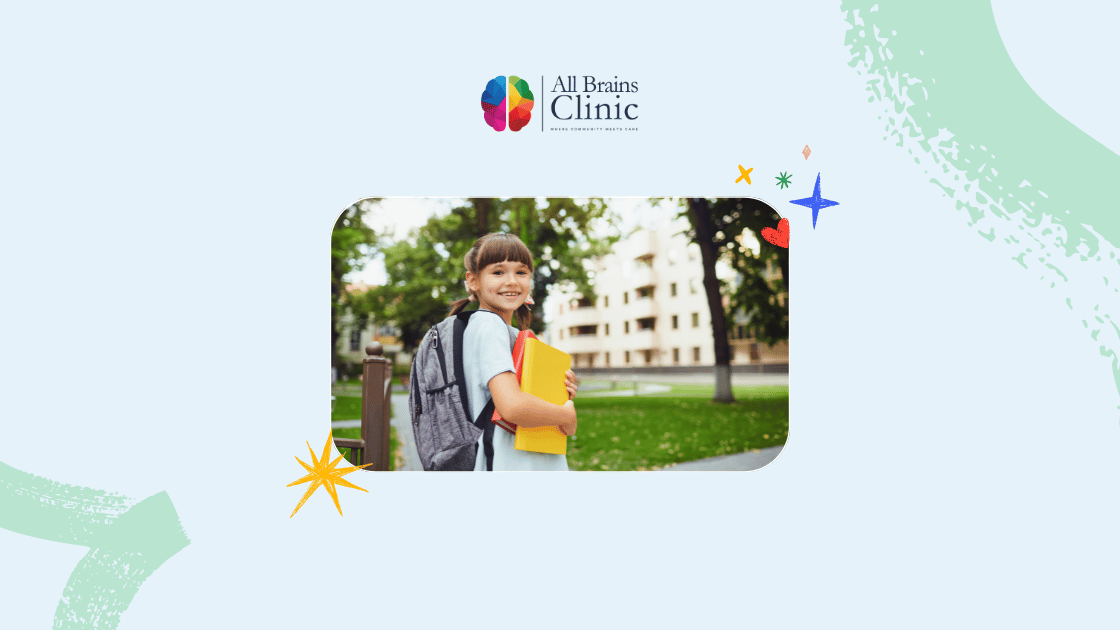As a parent, you want nothing but the best for your child, and it’s heart-wrenching to see them face difficulties at school. When you notice those signs, it’s only natural to want to help them find their way. A psychoeducational assessment can be a supportive step that can make a real difference in your child’s learning experience. In this article, we’ll take a closer look at the signs that might indicate your child could benefit from an assessment. Remember, you’re not alone in this journey; many parents face similar challenges and seek ways to help their children grow.
.png)
What is a Psychoeducational Assessment?
A psychoeducational assessment is a comprehensive evaluation that helps understand a child’s learning strengths and challenges. It identifies why a child has difficulties with schoolwork and social interactions. This assessment uses psychological and educational tests to check skills like reading, writing, math, reasoning, memory, and problem-solving.
It also looks at a child’s behavior, emotions, and social skills. The assessment helps find out if a child has learning disabilities, ADHD, or other issues that affect their school performance. The results give parents and teachers a better understanding of the child’s needs and strengths, allowing them to create effective support strategies.
.png)
What is a Learning Disability?
A learning disability, or learning disorder (LD), is a condition that affects how someone takes in and processes information. Early signs of learning disabilities in children include challenges with reading, writing, remembering things, recalling facts, math, or communicating verbally and nonverbally. They usually start in childhood but might not be noticed until schoolwork becomes too challenging. Typically, LDs are diagnosed through a psychoeducational assessment, which looks at a person's thinking, learning, social skills, and emotions. This evaluation often includes tests, interviews, and observations of behavior.
Usually, common types of learning disabilities include:
- Dyslexia: Trouble with reading and understanding language.
- Dyscalculia: Difficulty with numbers and math.
- ADHD (Attention-Deficit/Hyperactivity Disorder): Problems with attention, controlling impulses, and staying organized.
.png)
Signs Your Child Needs a Psychoeducational Assessment
As a parent, it's important to watch for behavioral signs in school-aged children. If you notice these signs early, you can give them the support they need right away.
Here are the signs you should watch out for:
Sign 1: Struggles with Reading
One of the most common signs of a learning disorder is difficulty with reading. If your child is struggling to sound out words, reads at a slower pace, or often mispronounces words compared to their peers, it might be a sign of a reading challenge. It's important to understand that these difficulties can affect not just their reading skills but also their overall learning and success in school, as reading is key to finding information in all subjects.
Sign 2: Struggles with Math
Math is an essential skill for everyday life and doing well in school. If you notice that your child has a hard time grasping basic math ideas, struggles with solving problems, or tries to avoid math altogether, it may be a sign they are having difficulties. This could also show up if they seem confused about numbers, how they compare to each other, or how we use them in our daily routines. If your child feels upset or anxious about math, it's really important to pay attention to their feelings and offer support.
Sign 3: Weak Memory
Children with learning disabilities can have trouble remembering information. This often looks like they have a poor memory. They might forget instructions, have a hard time recalling what they learned, or struggle to remember details from earlier lessons. Memory is important for learning, and problems in this area can make it hard for a child to keep up in school.
Sign 4: Difficulty with Organization and Time Management
If a child has trouble keeping track of tasks or managing their time, they might have executive function problems. For example, a messy backpack, losing homework, or forgetting to turn in assignments can be signs of this. Being organized is important for doing well in school, and helping kids learn these skills can make it easier for them.
.png)
Sign 5: Challenges with Emotional Regulation
Extreme mood swings and trouble with feelings at school can be serious. This might look like getting really angry, feeling very sad, or suddenly yelling. These feelings can make it hard for kids to learn and play with friends. It’s important to pay attention to these changes because they might mean a kid needs extra help to feel better and do well in school.
Sign 6: Issues with Attention and Focus
Difficulty in sustaining attention could be an emotional symptom of undiagnosed ADHD or other attention-related challenges. Recognizing these behavioral red flags in school-aged kids is important, and seeking support can make a significant difference in improving your child’s focus and overall well-being.
Sign 7: Unexplained Drop in Academic Performance
If a child gets different grades in different subjects, it might mean they have a learning problem. For example, if they get A’s in math but F’s in English, it could be because they find reading hard. This can show that they need help. Getting an assessment can help find out if they need support. With the right help, they can do better in school.
Sign 8: Limited Vocabulary or Language Skills
If a child has a small vocabulary or finds it hard to talk, it might mean they have a learning problem. If they struggle to share their thoughts, use only a few words, or don’t understand what others say, these could be signs of a bigger issue. Good language skills are important for talking and doing well in school, so it’s best to get help with these problems early on.
Sign 9: Input from Teachers or School Counselors
Listen to what teachers say. Their comments can help decide if an assessment is needed. Teachers often notice potential issues first, which can lead to important assessments.
Sign 10: High Anxiety About School
Anxiety can be very overwhelming. High anxiety about schoolwork and performance can make it hard for a child to learn. Getting an assessment can help change this for the better.
.png)
Taking the Next Step in Your Child’s Learning Journey
After recognizing the signs that your child needs a psychoeducational assessment and completing the assessment process, the psychologist will review the results and provide you with a detailed report. This report will show your child’s strengths and provide recommendations based on their needs and challenges. You will also have a feedback session to discuss the results with a professional.
You can use the assessment report to get additional help. One option is our learning support coordinator, who will assist your child in getting the educational support they need.
Understanding when a psychoeducational assessment is needed and when to seek a child psychologist can make a significant difference in navigating this journey. It's natural to feel worried or stressed, but knowing you’re not alone and have support and resources available can ease your concerns.

Dr. Ali Eslami, Chief Editor
Dr. Ali Eslami is a child psychiatrist at BC Children’s Hospital and All Brains Clinic with a PhD from Brown University. With expertise in neurodevelopmental disorders, autism assessment, and AI research in mental health, he ensures every article meets the highest standards. His sharp editorial eye guarantees clarity, accuracy, and credibility in all our content.

.svg)


.svg)
.png)



.png)


.svg)








.svg)




